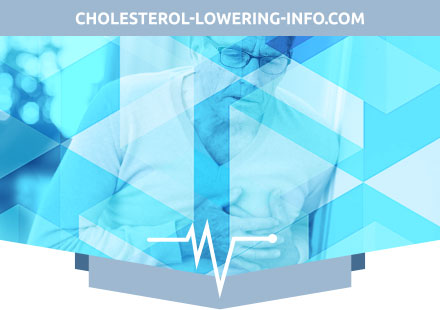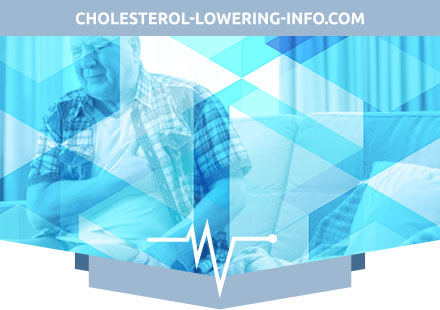Causes, Warning Signs and Symptoms of Heart Attack
A heart attack is also known as cardiac arrest or myocardial infarction is one of the most common health problems these days. Many people have a history of heart attacks and in some cases, death occurs due to heart attacks. People who have had already suffered from a heart attack can again have heart attack if they do not take precautions. With a proper and healthy diet, regular exercise and adopting a healthy lifestyle one can reduce the risk of heart diseases especially heart attack.
This article explains what happens in heart attack, why the heart attack occurs, its symptoms and causes and how to prevent a heart attack.
General Overview:
Myocardial infarction or heart attack (cardiac arrest) is one of the severe heart problems or medical condition in which the heart is deprived of blood supply and due to blockage, either complete or partial in the veins. This blockage is usually a result of a blood clot and restricts the supply of oxygen to the heart.

The lack of blood supply and oxygen severely damages the heart muscles and heart walls and if not treated on time it can cause death. A first heart attack is considered as one of the most life-threatening and severe heart attacks which can cause the death of the person.
On the basis of blockage heart attack or cardiac arrest is classified into two categories. If the heart attack is induced due to complete artery blockage it is known as “ST-Elevation Myocardial Infarction STEMI)”. On the other hand, if the heart attack is the result of a partial blockage in a coronary artery it is known as “Non-ST Elevation Myocardial Infarction (NSTEMI)”. The symptoms in both cases might be the same but the diagnostics and treatment of both STEMI and NSTEMI are different.
Mostly heart attacks or cardiac arrest start slowly with a mild and gradually increasing pain and discomfort in the chest. But sometimes the heart attack can be very sudden and intense. The ratio of people dying with heart attacks is higher where people experience sudden and intense heart attacks.
A heart attack is a serious problem and therefore if you feel that you are experiencing any of its symptoms or someone around you does not hesitate to call the ambulance for help.
Symptoms and Warning Signs of Heart Attack:
The symptoms or warning signs of heart attack or cardiac arrest can be both immediate and gradual. Pay close attention to the symptoms and warning signs of heart attacks and in case someone around you experiences such symptoms immediately call for medical help. The common symptoms of heart attack or cardiac arrest include:
- Chest Pain or Discomfort: In most cases, heart attack starts with mild chest pain and discomfort in the center which gradually increases or sometimes go away after a short interval and returns again. The chest discomfort or pain in case of heart attacks feels like an uncomfortable pressure & squeezing of heart.
- Upper Body Discomfort: A person experiencing a heart attack might experience pain or discomfort in the upper body due to the blockage of blood supply. He/she can experience intense pain in the arms, neck, and back or even in the stomach. A heart attack can also induce severe pain or tightening pressure in the jaw and shoulders.
- Shortness of Breath: While the intensity as well as the occurrence of chest discomfort varies from person to person but the shortness of breath is one of the symptoms which occur with or without chest pain and discomfort.
- Cold Sweat: cold seating is another symptom of heart attack. This symptom is simultaneous with shortness of breath.
In addition to the above symptoms, there are some indirect symptoms too which also indicates towards heart attack or myocardial infarction. These include:
- Indigestion
- Heartburn
- Abdominal – severe or mild
- Nausea
- Fatigue
- Lightheadedness
- Sudden Dizziness
All of the signs indicate towards a heart attack and these sign should not be avoided. A person experiencing any of the symptoms or more than two symptoms at once should immediately reach out for medical help. If these signs are ignored the condition can get worse and could be life-threatening.
Heart Attack Symptoms Vary in Persons
Multiple studies conducted on heart attacks showed that the symptoms and warning signs of heart attacks vary from one person to another. Some people might experience mild chest pain or discomfort or some people might not experience any symptoms. Some people may have a sudden and intense cardiac arrest as a first sign. Not only the occurrence of symptoms but also the severity of symptoms varies from persons to persons.
Moreover, in some cases, the symptoms of heart attack or cardiac arrest are sudden and immediate while in other cases people might start experiencing the signs and symptoms of heart attack, hours, days or weeks before in advance.
These earlier or advance warning signs are recurrent and start with chest pain or pressure, another heart condition known as angina. Angina is a condition in which there is a temporary decrease in the blood supply or flow to the heart. The pain is usually triggered by stress or exertion and goes away with rest.

Also, the symptoms of cardiac arrest are not similar in men and women. Women, unlike men, can experience more than one symptoms and warning signs of a heart attack as compared to men. Women experience chest pain or discomfort (either mild or severe) along with shortness of breath, nausea, vomiting, shoulder pain & tightness and back or jaw pain.
In most cases, women also have a severe or mild abdominal pain followed by heartburn. These symptoms should not be avoided and it is recommended to consult a doctor.
What is the Cause of Heart Attack?
A heart attack is induced by the blockage of coronary blood vessels which restrict the flow of blood to the heart. The blockage in coronary arteries is due to narrowing of blood vessels which is the result of substance buildup inside the lining of the blood vessels. Usually, there is a cholesterol buildup or plaque a condition known as atherosclerosis. The plaque gradually increases in size over the period of time and block the vessel.
The narrowing of coronary arteries or plaque buildup is one of the coronary artery diseases and is one of the major causes of heart attack or cardiac arrest. In some cases, during a heart attack, the plaque (cholesterol deposition) ruptures and as a result, the cholesterol is spilled in the bloodstream. This rupturing of cholesterol along with other substances forms a blood clot at the site of rupture.
The blood could be small or large in size. If the blood clot is large in size it can block the blood flow and restrict heart to get normal amount of blood. Even if the blood clot is small it still can decrease the normal blood flow rate. Both situations are severe and increase the risk of heart attack.
Another reason for or cause of cardiac arrest is coronary artery spasm. In this situation, the blood flow to a part of the heart or heart muscle is completely shut down. Coronary spasm is a life threating situation and it is induced by multiple reasons.
Risk Factors of heart attacks or cardiac arrest includes:
- Drugs – use of drugs such as cocaine can cause coronary spams which is life-threatening.
- Smoking – excessive and continuous smoking is injurious to both lungs and heart. Tobacco in cigarettes damages the lining of coronary arteries and other blood vessels. The result of this damage is the thin walls of blood vessels which are perfect for cholesterol buildup. And restrict heart to get enough blood flow. Tobacco also causes coronary spasm.
- Age – Age is another factor of heart attacks. The risk of heart attacks is high in old persons as compared to young people. Men at the age of 45 or older and women of 55 or older have high risk of heart attacks. It is because the heart muscle and arteries of old persons are not rigid and thick as compared to the young people, which is why the risk in older people is high.
- High Blood Pressure – Over the time high blood pressure gradually damages the blood vessels and arteries of the human body. In high blood pressure, the blood flows at a rate higher than normal blood flow and hence exerts a pressure on the arteries. The result of this is damaged and thin walls which increases the risk of cardiac arrest and angina.
- High Blood Cholesterol Level – High cholesterol level is the result of elevated levels of triglycerides and bad cholesterol in our blood. High cholesterol contributes towards plaque buildup which can cause both blockage and formation of blood clot. The plaque buildup narrows the coronary arteries and restricts our heart from blood flow.
- Overweight & Obesity – Obesity is the cause of many health problems. It is associated with high cholesterol, high blood pressure, diabetes, and heart attack. Obese persons are more susceptible to heart attacks as compared to physically fit person.
- Diabetes – Elevated blood sugar levels also increase the risk of cardiac arrest.
- Metabolic Syndrome – Metabolic syndrome is also associated with obesity, diabetes and high blood pressure, therefore, it increases the risk of heart attack twice as compared to a person who does not have these health problems.
Other risk factors of heart attacks include:
- The family history of heart attack
- Previous history of heart attack
- Lack of physical activity
- Stress and exertion
- History of preeclampsia – High blood pressure during pregnancy
- An Autoimmune condition such as rheumatoid arthritis or lupus.
Complications
If heart attack is not treated properly on time it can further complicate the condition. It can cause complications during a heart attack that can lead to life-threatening situations even death:
The complications during a heart attack may include:
- Arrhythmias – In this condition the patient experience abnormal heartbeats or rhythms, developing electrical short circuits.
- Sudden Cardiac Arrest – A person can suffer through sudden cardiac arrest or more than one heart attack within a short interval of time. It is very fatal and causes life if does not provide with immediate medical treatment
- Heart Failure – A severe and sudden first-time heart attack or even the mild heart attack can damage the heart muscles and tissues. The damage heart muscles and tissues fail to pump blood properly and as heart failure occurs. This condition could be temporary and sometimes permanent.
Prevention and Treatment:
Heart attacks can be prevented with the help of proper diet and regular exercise. A proper healthy diet and regular exercise reduce the risk of many health problems such as high cholesterol, high blood pressure, diabetes, and obesity. The chances of heart attack in a healthy person are very low as compared to an unhealthy person. Moreover, a person who consumes alcohol excessively or does excessive smoking has high chances of a heart attack as compared to a person who does not smoke or drink.
A heart attack can be treated both with medications and surgery. The first and immediate treatment of heart attack is aspirin. If a person is showing signs of a heart attack he should be given aspirin. Other medications for heart attacks are also available which can be taken with the doctor’s prescription only. The treatment of heart attack depends on the severity and cause of heart attack.
 AU
AU UK
UK CA
CA DE
DE FR
FR IT
IT ES
ES


